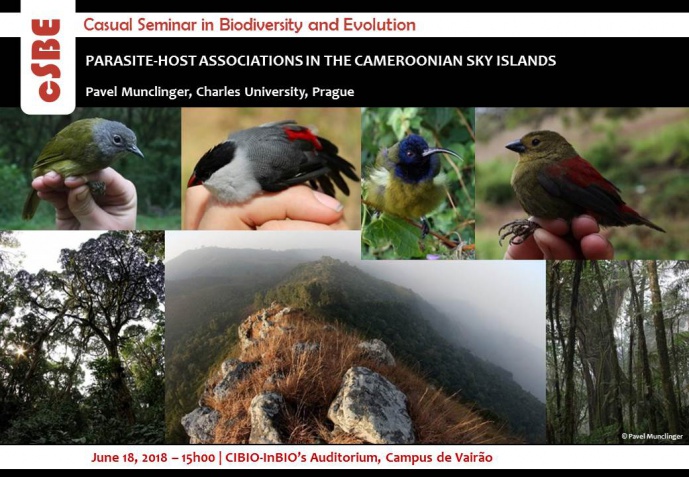PARASITE-HOST ASSOCIATIONS IN THE CAMEROONIAN SKY ISLANDS

CASUAL SEMINAR IN BIODIVERSITY AND EVOLUTION

Sky islands, high-elevation habitats isolated by lowlands, can be utilised as interesting models for evolutionary studies. We have studied birds and their haemosporidian (avian malaria) parasites in the sky islands of the Cameroon Line in western Africa, which harbours both local endemic bird species as well as afromontane species with a wider distribution. Mitochondrial and nuclear markers showed varying degrees of isolation in sky islands among bird species. While endemic species showed limited gene flow between sky islands, lowland habitats between sky islands probably does not function as an effective barrier for species with wider distribution. Hence our findings suggest that limited dispersal abilities of endemic species seem to be mirrored simultaneously at different scales. Pattern of parasite-host association differed between avian malaria genera Plasmodium and Haemoproteus. While Haemoproteus parasites showed similar highly specialized interactions in different sky islands, Plasmodium parasites differ in specificity and type of interactions (association of parasite lineages and host species) between islands, which suggests rapid local coevolution of parasites and hosts. To sum up, the sky islands of the Cameroon Line show surprisingly diverse systems of isolation and parasite-host associations.
Pavel Munclinger is assistant professor at the Department of Zoology, Faculty of Science, Charles University, Prague, Czech Republic. He is interested in application of molecular methods to answer questions about behavioural ecology, population structure, hybridization, and speciation of animals. His current research focuses on population genetics of tropical birds and coevolution of parasites and their hosts using bird parasites (avian malaria and feather lice) as models.
[Host: Martim Melo, Tropical Biology]
Image credits: Pavel Munclinger